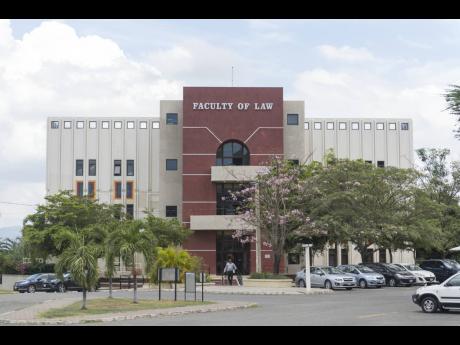New visa scheme blanks African, Caribbean graduates
A new Brexit-era visa scheme launched this week to attract the best graduates from the top 50 non-British universities who would like to work and live in the UK, has been chastised for not including those from African and Caribbean countries.
The ‘top talent’ visa scheme will allow eligible individuals who hold a degree, equivalent to a UK bachelor’s or postgraduate degree, along with their dependents, to come to the UK without a prior job offer. Ministers hope this specialised visa route will attract the ‘brightest and best’ to work in the UK.
The most recent list of eligible universities from 2021, published online by the UK government, comprises 20 US institutions, plus universities from Canada, Japan, Germany, Australia, Hong Kong, China, Singapore, France, Sweden and Switzerland. However, there are no listings for any universities from the Caribbean or African countries.
This exemption has been criticised by educationalists as undervaluing the graduate programme from these countries.
Nick Hillman, a director at the Higher Education Policy Institute in Oxford, told the New Scientist online: “This is the sort of idea the Home Office loves because it allows them to look liberal, while maintaining close control. I’m sceptical about it, because ‘top’ universities and the best universities are not the same when it comes to teaching quality.”
Professor OlusolaOyewole, secretary general at the Association of African Universities, called the Home Office “wrong” to undervalue the talent of African graduates.
Speaking to the Guardian newspaper, he said: “I believe Britain is unfair to African graduates, using the ranking of universities as a criterion for engagements. The UK is wrong to assume that graduates from high-ranking universities are more skilled than graduates from Africa.
“I do not want to make excuses for African universities, because their mission may not be the same as those of Europe and America that had been in existence for many hundreds of years. But a ranking system that considers the number of Nobel laureates as a measure of academic reputation may not favour African universities.”
For the Caribbean, the exclusion of The University of the West Indies (UWI) from the elite list goes against the Times Higher Education ranking system which had place the UWI within the top 1.5 per cent of universities in the world last September.
Dr Velma McClymont, a former Higher-Education teacher, author and a community activist, feels that this points-based graduate visa programme puts ability and talent first, which makes it an inclusion and exclusion system.
She said: “It is about desirability, who the UK government wants to let in. The list of eligible universities clearly focuses on the US, Europe and some parts of Asia, but none for the Caribbean and Africa.
“It seems odd that in the Queen’s platinum jubilee year, when she had sent your grandson to Jamaica to persuade us to remain in the Commonwealth, it now turns out the University of the West Indies is not good enough to produce graduates to come here under this scheme.
“We also need to question the financial criteria for the graduates to apply; the visa fee, health insurance and the living cost, when you add all of that cost you would be eliminating graduates from developing countries immediately. This is clearly based on who the UK government wants to let in. It’s not only about the brightest and the best, it’s about desirability as well.”
Dr Donovan Stanberry, registrar at The UWI Mona campus, is at a loss as to why graduates from the Caribbean would not be able to benefit from the new UK visa scheme.
He said: “The UWI is among the 1.5 per cent of universities in the world. This is not what we say, it is what has been established by the Times Higher Education ranking.
“Our university has top graduates all over the world. We have produced three Noble Prize laureates, and the United Nations has designated the UWI the lead university responsible for Sustainable Development Goal number 13 on climate change, in recognition of our pioneering work on its impact on small island developing states.
“We have a very robust medical programme, and we are a world leader in sickle cell management. So by any indicator, the UWI is up there with any other university in the world, so I’m at a lost why our graduates would be undervalued in the UK’s new visa scheme.”
Visa requirements
The UK government stipulates that candidates must pass a security and criminality check, and be able to speak, read, listen and write English to at least the B1 intermediate level.
The British Council, the UK’s international organisation for cultural relations and educational opportunities, defines B1 intermediate level as “those who have the necessary fluency to communicate without effort with native speakers”.
The visa will cost £715 and is subject to the immigration health surcharge, a fee successful visa or immigration applicants pay that allows use of the National Health Service. Anyone applying for the visa must also have maintenance funds of at least £1,270.
The graduate visa is the first one implemented since Britain left the EU last year. Chancellor of the Exchequer Rishi Sunak said: “This new visa offer means that the UK can continue to attract the best and brightest from across the globe. The route means that the UK will grow as a leading international hub for innovation, creativity and entrepreneurship.
“We want the businesses of tomorrow to be built here today, which is why I call on students to take advantage of this incredible opportunity to forge their careers here.”
Home Secretary Priti Patel said: “I am proud to be launching this new and exciting route as part of our points-based immigration system which puts ability and talent first, not where someone comes from.”
The government’s points-based immigration system means people coming to the UK for work must meet specific requirements for which they will score points, with visas awarded to those with enough points.


